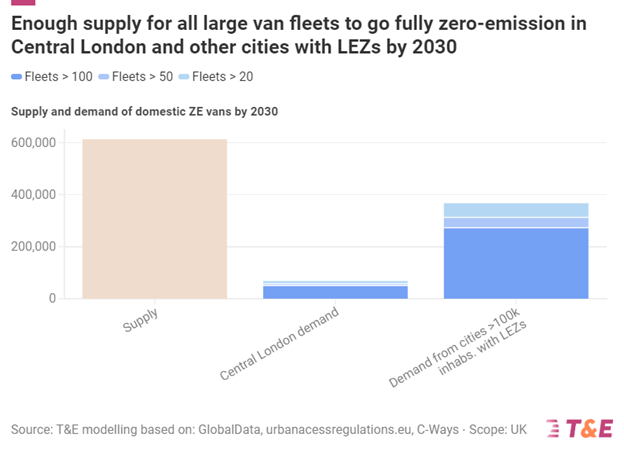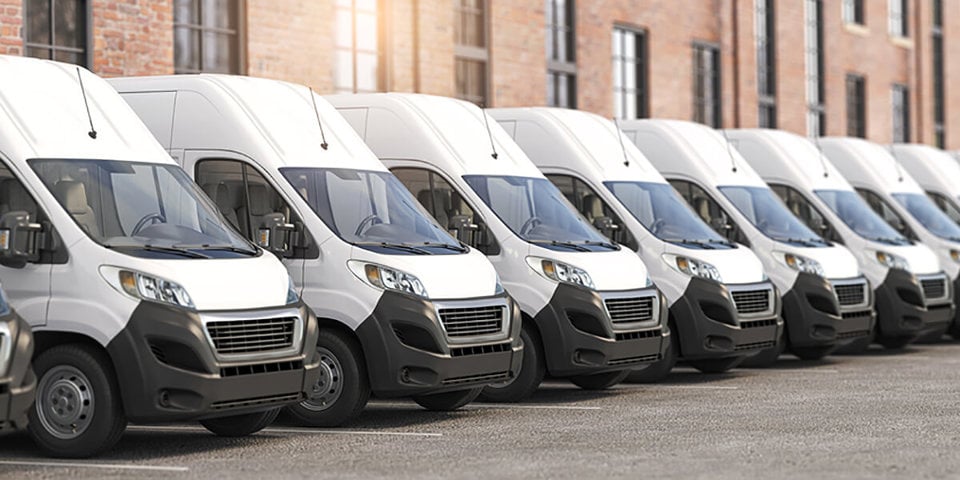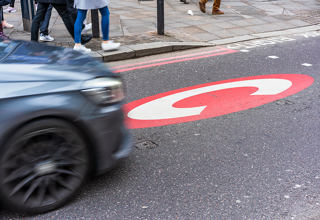Environmental campaign groups are calling for the UK to implement zero-emission zones in cities to tackle the climate crisis and drive the adoption of electric vans.
Currently, the proportion of electric vans currently sold in the UK is around half that in the Netherlands, where zero-emission freight zones are being introduced from next year.
However, with the right incentives and policies in place, Transport and Environment (T&E) and Clean Cities believe the UK to leapfrog other European countries in terms of electric van uptake in the coming years.
In new fleet analysis, conducted by T&E and Clean Cities, it says there would be more than enough electric vans on the market to enable zero-emission freight zones in the UK.
The report – Zero-emission fleets in cities – claims that by 2026, there will be more electric van models available than diesel and petrol, and by 2027 the average price of an e-van will be cheaper than a diesel van.
The range of the models available today, the study finds, is already suitable for most van drivers.
There are, it says, already 23 zero-emission models available with a range above 155 miles, including three models with more than 205 miles of range.

Company vans, it claims, drive 109 miles a day on average, though vans carrying goods drive more: 120 miles/day on average for business-to-business (B2B) delivery, and 158 miles/day on average for business-to-consumer (B2C) delivery.
Oliver Lord, head of strategy and UK at the Clean Cities campaign, said: “This study shows that, with the right incentives in place, our city leaders can work with businesses to be much more ambitious when it comes to zero-emission freight.
“Instead of ending perks for electric vans next year, such as the plug-in van grant or the London congestion charge exemption, this Government should work with city leaders on a framework of policies so that e-vans become the go-to choice for fleets.”
At the beginning of October more than 40 businesses signed a letter to the Mayor of London calling for an extension of the congestion charge exemption for electric vans to support the cost of investing in environmentally friendly fleets.
T&E is also calling on the Government to continue the national plug-in van grant beyond spring next year, when it is slated to end.
Ralph Palmer, electric vehicles lead at T&E UK, said: “The ZEV mandate is going to be an essential driver of the move to electric vans, helping to bring more supply and prices down.
“But the mandate can’t be the be-all and end-all. If the Government is serious about decarbonising the nation’s van fleets, it needs to have a plan, starting with extending the plug-in van grant beyond 2025 and accelerating rollout of van-accessible charging infrastructure across the country.”

























Login to comment
Comments
No comments have been made yet.